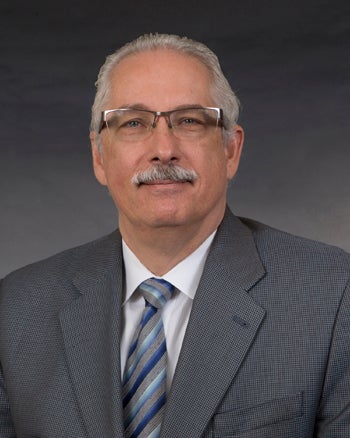Busalacchi testifies to Congress about data and innovation for predictions
UCAR president emphasizes importance of private-public-academic collaboration
Mar 28, 2023 - by David Hosansky
Mar 28, 2023 - by David Hosansky
Testifying at a congressional hearing this morning, University Corporation for Atmospheric Research (UCAR) President Antonio Busalacchi told lawmakers that the success of U.S. weather forecasting efforts relies on increasingly productive collaborations among a triad consisting of the academic and research communities, the public sector, and the private sector.
All three legs of this triad must continue to expand, Busalacchi told the Environment Subcommittee of the House Committee on Science, Space, and Technology. “It is important to the future success of the weather enterprise that each leg of the triad continues to grow, and that any reduction in size of any leg will negatively impact its diverse beneficiaries,” he said.

The subcommittee hearing focused on data and innovation for predictions as Congress considers reauthorization of the Weather Research and Forecasting Innovation Act of 2017. Known as The Weather Act, the legislation’s primary goals focus on advancing weather research, improving forecasting, and expanding commercial opportunities for the provision of weather data.
Busalacchi noted that he has personally witnessed the importance of the triad. During his time at the NASA Goddard Space Flight Center, for example, he was the source selection official for the Sea-viewing Wide Field-of-view Sensor satellite known as SeaWiFS. This satellite mission, launched by Orbital Sciences Corporation in 1997 to provide unprecedented data on the oceans to the university research community, was one of Washington’s very first data buys and an important collaboration involving the government, private sector, and academic community.
More recently, the government, private sector, and academic community again came together on an innovative satellite mission, the Constellation Observing System for Meteorology, Ionosphere, and Climate (COSMIC). The first set of six COSMIC microsatellites, launched in 2006, led to improved prediction of tropical cyclones, global weather, and space weather forecasting by using GPS radio occultation techniques that UCAR had helped to develop. A second set of six microsatellites, launched in 2019 and known as COSMIC-2, is providing even more data. COSMIC has enabled private weather data companies like Spire Global to develop their own observational systems for radio occultation, Busalacchi told the subcommittee.
“This commercialization of radio occultation observational systems should be celebrated and is another fine example of how the research community, the government, and the private sector can work together to drive innovation and create value together as technology development moves forward,” Busalacchi said.
The UCAR president focused much of his remarks on the importance of data assimilation — a field of data science that combines observations and computer models in ways that are vital for prediction. He noted that U.S. weather forecasting capabilities continue to lag behind those of Europe because European forecast models are better able to utilize the data that are already available.
“Therefore it is critical that policy makers make significant investments in data assimilation and the operational modeling and forecasting workforce to create more accurate predictive forecasts in service to society with the existing observation systems we already have,” he said.
Busalacchi also asked the subcommittee to consider the initiation of a decadal survey for the entire weather enterprise that would include a strong emphasis on data innovation for prediction. Amid the growing costs of weather disasters across the United States, a decadal process by the National Academies of Sciences, Engineering, and Medicine would allow policy makers to set priorities to improve forecasts while recognizing current fiscal realities.
“If we do it right, we can leverage every leg of the triad to spur successful growth of the entire weather enterprise,” Buslacchi said. “If we get it wrong, we risk falling further behind with our prediction capabilities at a time when the extreme weather impacts to our nation continue to grow.”
UCAR is a nonprofit consortium of 122 North American universities granting degrees in atmospheric and related fields in Earth system sciences. It manages the National Center for Atmospheric Research (NCAR) on behalf of the National Science Foundation. UCAR also hosts a suite of programs, called UCAR Community Programs, that provide service and support to the academic community.